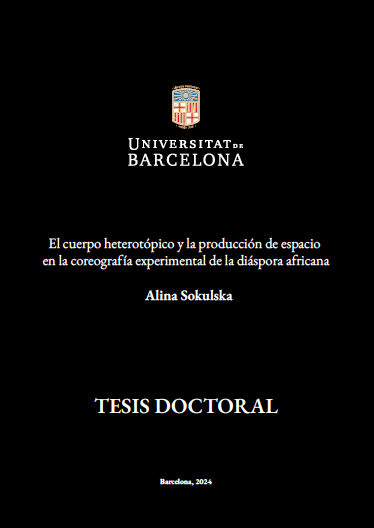
heterotopic body and the production of space
in contemporary experimental choreography of African diaspora
doctoral dissertation
ABSTRACT
This research focuses on the political power of bodily and spatial representations developed in the experimental choreographies by four artists of African descent: nora chipaumire, Jaamil Kosoko, Okwui Okpokwasili, and Dana Michel. Given that the body signifies and is traversed by power relations, social ordering, and knowledge production, the black body is a territory upon which representations and clichés have been projected, encapsulating the history of violence, segregation, and racism, yet also containing the memory of its resistance through the artistic tradition of the African diaspora. Therefore, this thesis proposes that choreographic arts, insofar as they create space through the movement and expression of corporeality, can be the driving force behind the generation and organization of space. Developing the idea of heterotopia conceptualized by Michel Foucault in 1967, a dissection of Western utopian thought is presented through the analysis of the proposals of contemporary artists, who engage in a complex questioning of Western episteme through the radical performance of their choreographic practice. Proposing an interdisciplinary reading of heterotopia through the theoretic apparatus of postcolonial, cultural, semiotic, and performance studies, this thesis also aims to amplify the epistemological value that art forms such as choreography and performance have to contribute to critical thinking.
Key words: heterotopia, corporeality, choreography, production of space, African diaspora, western episteme, power relations.
the University of Barcelona, 2024
Director: Bernat Padró Nieto
Tutor: Víctor Escudero Prieto
Language: Spanish

